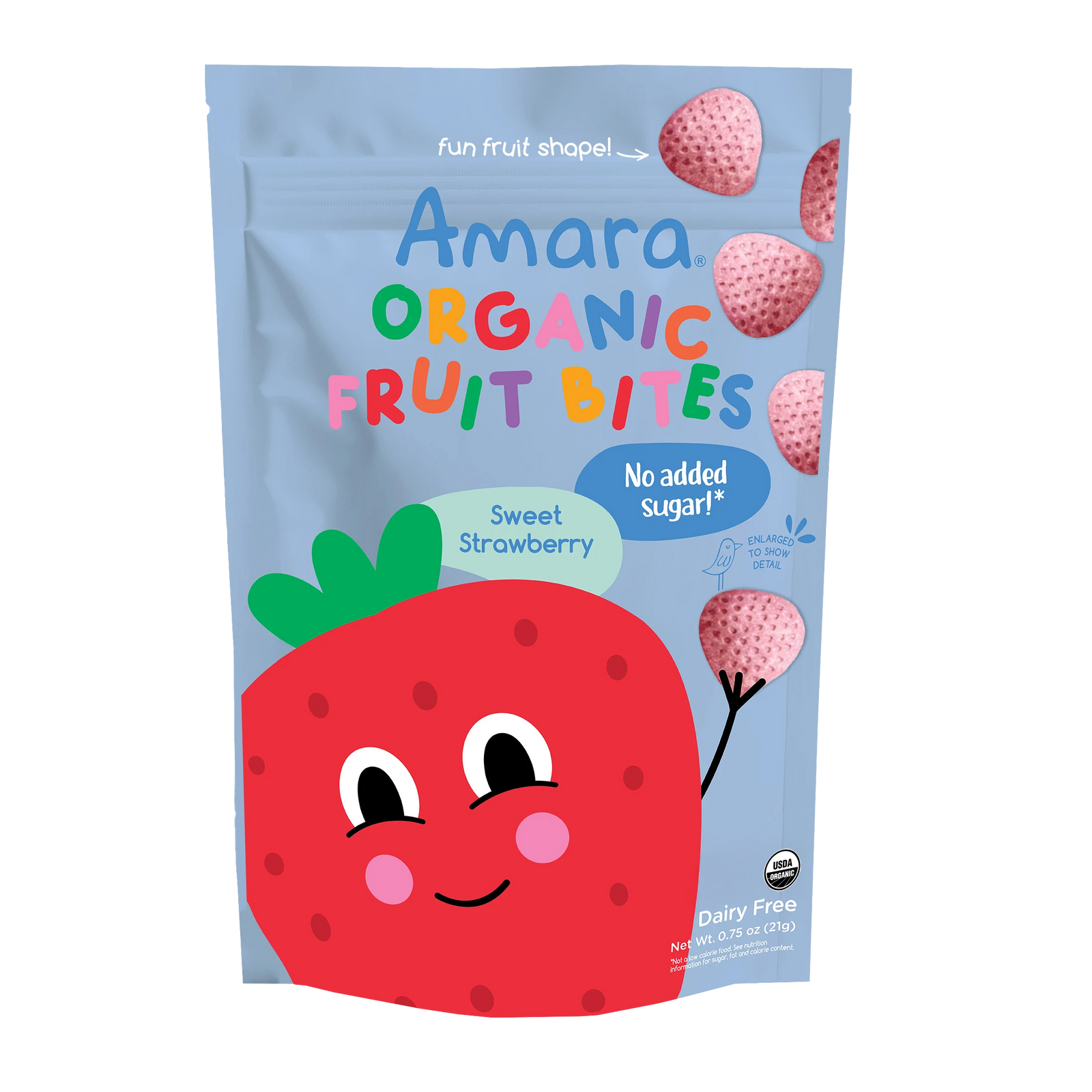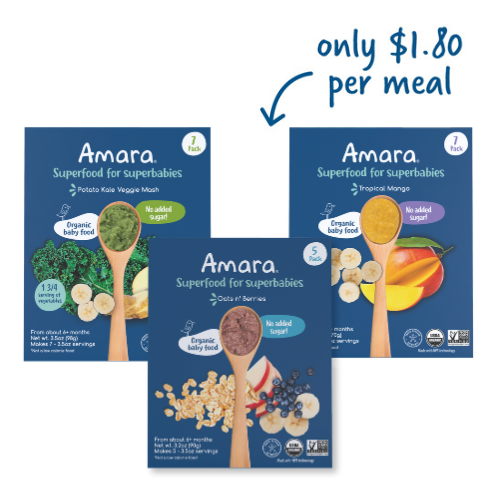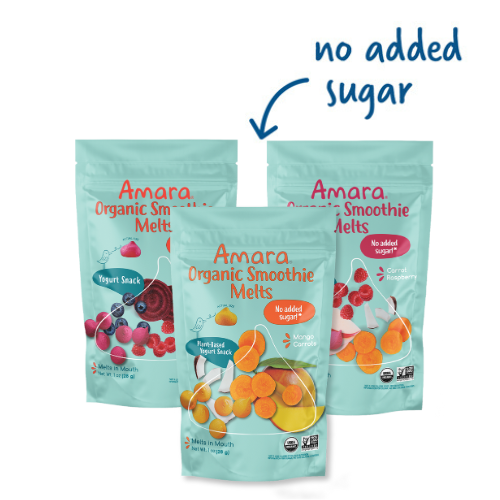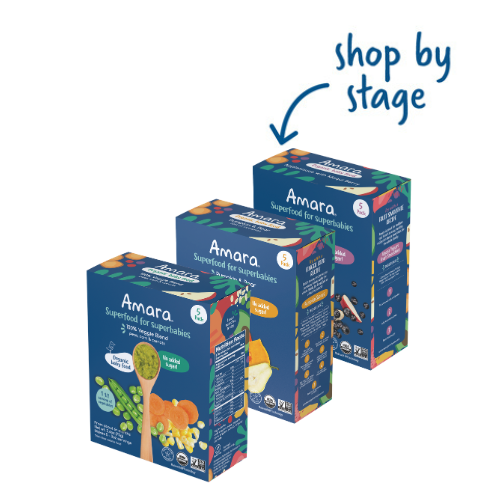My Baby Is Gassy And Won’t Stop Crying! Help!

When babies are first learning to eat, they often swallow too much air which goes down into their tummies, leading to the dreaded gas and fussiness parents know all too well. It’s this excess gas that may cause babies to spit up, burp, fart, and all the other funny noises they make.
Unfortunately for baby --and mom and dad-- this excess air can cause a lot of discomfort and end in what seems like unending crying--again by both baby AND parents. When babies are not able to release the air themselves and seem stuck feeling miserable and gassy, here’s what you can do as a parent to help make your baby get more comfortable.
Spit-Up & Gas Before Starting Solid Foods
The current recommendations are to continue to exclusively breastfeed up until the first 4-6 months if possible before introducing the first solid food items, according to AAP. During and after breastfeeding or formula feeding, babies will spit up for various reasons. Having a cloth or swaddle on hand will assist with easy clean-up.
Mostly this spit-up is due to reflux, when the baby’s stomach contents come back up through the mouth instead of making its way down to the intestines. Spit-up associated with a feed is very normal and not something to be concerned about, but if baby seems uncomfortable, or the spit-up appears excessive, try and keep baby upright after a feed to let gravity work its magic to carry the food down to baby’s stomach. When possible, avoid laying your baby flat on their back for too long immediately after a feed. After meals, babies can either sit up or recline in a seat.
Another cause of this spit-up is taking in too much air during a feed. If you are feeding them formula, don’t shake the bottle too much before feeding your baby. The formula can foam up and make your baby drink down more air than they’re expecting. This can cause tummy problems if they can’t get the air out. They could start crying or fussing, or spit up more than usual.
If they can’t get the air out, your baby will become fussy or start crying. Setting the baby on your shoulder and patting their back gently to coax the air out can help. Be sure to put that burp cloth on your shoulder! It’s common for babies to spit up after a burp. You can also help them to sit up and pat their back that way.
Tummy Troubles after Starting Solid Foods
Between 4-6 months is the time to start introducing solid foods to your baby while still breastfeeding. During this time you will continue mainly breastfeeding or give formula milk to your baby and start to offer some solid food beside the milk. This is called complementary feeding. This isn’t weaning, but a time to introduce your child to different solid foods.
For the first year it’s better to continue giving them breast milk if you can. A baby’s weight triples by their first year and their brain doubles in weight between 6-12 months. Babies need a lot of fuel to make all this happen! With the passing weeks and months, the amount and variety of complementary foods will increase, and your baby will start to consume more and more regular meals. Eventually, your child will prefer solid foods over breast milk or formula.
Introducing solids is a time to watch your child’s reaction to various foods. Allergic reactions are often discovered during this time as are foods which trigger excessive bloating and gas. Watch for signs of discomfort in your baby after they eat a new solid food.
There are some foods that are more likely to cause gas in your baby. These include:
* Garlic, onions, and leeks
* Cucumbers
* Beans, peas, and lentils … important to soak and cook them thoroughly
* Cabbage
* Cauliflower
* Broccoli
* Apples, grapes, and cherries
* Grains (wholemeal) with processed sugars
If your baby is showing a strong reaction to these, you may want to wait until later to introduce them to avoid discomfort. Sometimes it is best to avoid offering the offending food for a time if it promotes too much gas production in the baby´s intestine or maybe just delaying the introduction in the baby´s meals. Every month or so, continue to offer these foods to your infant until they eventually become accustomed to them. Once their digestive systems are more mature, these foods should all become safe for baby to eat comfortably.
Infant Colic
An extremely common but poorly understood symptom complex is infant colic. Colic occurs in 10% to 26% of all children. An infant with colic is defined as an otherwise healthy infant who cries for more than three hours a day, more than three days a week, lasting for more than three weeks in duration. Colic normally begins during the first weeks of life, peaks at 6 to 8 weeks, and resolves itself between 12 and 16 weeks. It is equally common between sexes, gestational age and in both breast- and bottle-fed infants. Although crying is normal for all infants, averaging 2.2 hours per day, those with colic cry excessively, are more difficult to console, have disrupted sleep, and are a source of much parental anxiety.
Thankfully, colic cures itself and doesn’t cause any lasting damage to infants. The dangers may not be the colic itself but the potential damage to the parent-child bonding and relationship and to maternal mental and emotional well-being. Not being able to soothe baby can lead to feelings of inadequacy, self-doubt and even anger, anxiety, and depression. Colic is often worse in the afternoons and evenings, putting even more stress on parents who are exhausted from a long day of childcare and work. While a baby is colicky, parents need to make sure to practice good self-care and seek support in their close circles and community.
There have been a lot of theories about what causes colic. Colicky babies are often quite gassy. Some reasons of excess gassiness include intolerance to lactose, an immature stomach, inflammation, or poor feeding technique.
Neither feeding method nor the type of milk seem to cause the crying, but there are some initial studies about a bacterial cause in the gut. The gut flora between colicky and non-colicky babies is very different. Studies are too early to give specific recommendations to alter a baby’s gut flora. There have been no cases so far where colic was cured due to changing a baby’s gut biome, but research is promising.
While some studies support the beneficial effects of administering probiotics like L. reuteri in breastfed infants with colic, the evidence supporting probiotic use for the treatment of infant colic or crying in formula-fed infants remains unresolved. (Chau et al 2015; Anabres et al 2013; Johnson et al 2015) The human gut flora develops rapidly after birth and is known to be influenced by route of delivery (vaginal vs cesarean), type of feeding (breast vs formula), and other environmental factors. The use of probiotics to influence the types of bacteria in a child´s intestinal tract continues to be an area of active research. (Dawssow et al 2016)
Still, dietary changes in infants with colic is a common practice, but it needs more research. Some studies have demonstrated a reduction in colic when a breastfeeding mother consumed a hypoallergenic diet (excluding cow´s milk, eggs, peanuts, tree nuts, wheat, soy and fish). Despite the lack of evidence, it doesn’t seem to hurt babies for their mothers to avoid these foods. (Critch et al 2011, Canadian Paediatric Society; Iacovou 2016) The consumption of herbal supplements (including peppermint) and various herbal teas (including fennel, chamomile, vervain, lemon balm, licorice) have also decreased the crying time in some studies. A systematic review concluded that more research is recommended before recommending these treatments. (Johnson et al 2015)
One thing to be beware of is using soy formula. Soy formulas may reduce the symptoms of colic in some bottle-fed infants. However, the therapeutic use of soy formulas in colic is not recommended because soy protein is a frequent allergen in infancy. Also, evidence does not support the use of lactose-intolerance products in infants. (Critch et al 2011).
Because infantile colic is benign and self-limited process, the mainstay of treatment is parental support and reassurance are key components of the management of colic. Colic is a diagnosis of exclusion after a detailed history and physical examination have ruled out concerning causes. (Johnsons et al 2015). To read about what to do if you think your baby has colic, check out our previous post here. If you’re looking for online support and community, check out this active FB group of moms with fussy babies.

At Amara, we’ve developed baby food blends which are gentle on baby’s developing gut. Check out our Introduction to Solids Variety Pack to help ease your baby’s tummy into solids.
 Amara's Chief Nutritionist: Sonia A. Schiess, PhD in Nutrition, specialized in the introduction of solids and liquids to infants. Sonia's passion started when she was studying nutrition and dietetics in university, completing a post degree in Human Nutrition. Later on, she completed her PhD as a nutritionist, with a focus on introducing food in the first year of a baby's life. Her wide experience gives her a unique perspective, drawing from her time in clinics, hospitals, independent consulting and university research. She's authored several papers including "Introduction of complementary feeding"; "Introduction of potentially allergenic foods in the infant's diet during the first year of life" and "Intake of energy providing liquids during the first year of life" in five European countries. The combination of Sonia's science and our chef's magic ensures every Amara product is not only optimized for your baby's health but is delicious as well.
Amara's Chief Nutritionist: Sonia A. Schiess, PhD in Nutrition, specialized in the introduction of solids and liquids to infants. Sonia's passion started when she was studying nutrition and dietetics in university, completing a post degree in Human Nutrition. Later on, she completed her PhD as a nutritionist, with a focus on introducing food in the first year of a baby's life. Her wide experience gives her a unique perspective, drawing from her time in clinics, hospitals, independent consulting and university research. She's authored several papers including "Introduction of complementary feeding"; "Introduction of potentially allergenic foods in the infant's diet during the first year of life" and "Intake of energy providing liquids during the first year of life" in five European countries. The combination of Sonia's science and our chef's magic ensures every Amara product is not only optimized for your baby's health but is delicious as well.








My baby is six weeks old, she she shows signs of pain when she’s belching after feeding and she cries and farts alot
– Joy November 07, 2023